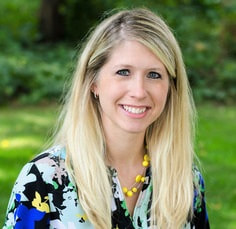
Today I am grateful to have Pastor Kimberly Reese as a guest blogger. Kimberly serves as the Pastor of Connections at the Good Shepherd United Methodist Church in Benton Ridge, OH (just west of Findlay). Kimberly is credentialed in the Great Lakes Conference of the Churches of God. She’s a graduate of the University of Findlay and Winebrenner Theological Seminary. She’s married to Erick and mom to four children.
Kimberly was one of the local voices at Winebrenner Seminary’s Q Commons experience last week. Her presentation of Acknowledging the Hidden Hurts was powerful and prophetic. I asked her if she would share those same thoughts as a guest blog and she graciously agreed. These are words that we need to hear, take to heart and put into practice.
Christ’s Peace,
Lance

In my role as the Pastor of Connections I have had the privilege of meeting with individuals and families during some of their most life changing moments; some moments are filled with joy, but more often these moments are full of grief or pain. Some of those pains are the obvious ones, like working through grief on the passing of a loved one, but I also spend time with people who are hurting and no one else knows it. Or they’re working through a pain that they’re embarrassed or ashamed to acknowledge.
Over the last two years one of these major areas of hurt started coming to light through the “me too” movement made popular through social media. If you’re unfamiliar with this movement it began all the way back in 2006 as a way to help women who had survived sexual violence. Over the last 12 years the movement has picked up steam and in more recent years has served as the slogan or hashtag to bring to light the number of individuals that have been victims of sexual harassment, sexual abuse or sexual misconduct. These allegations have been pointed toward celebrities, politicians, professional athletes and media staff along with the everyday citizen.
Many people have been shocked at the number of individuals – mostly women- who have come forward through this movement as victims. But when we start to look at the statistics perhaps we shouldn’t be so surprised. According to the National Sexual Violence Resource Center:
- 1 in 5 women will be raped sometime during their lifetime.
- 1 in 4 girls and 1 in 6 boys will be sexually abused before they turn 18 years old.
- 1 in 5 women are sexually assaulted while in college
- Rape is the most under-reported crime:
- More than 90% of sexual assault victims on college campuses do not report the assault.
- Of all sexual assaults, 63% are not reported to police. And 88% of child sexual abuse is not reported to the authorities.
And these stats don’t include the many victims of stalking, sexual harassment, and other ways of sexual misconduct.
I’m guessing you’re like me and its heart breaking to see these stats and to consider the number of people who have been abused and who are hurting; we probably all know faces and names that fall into these numbers.
Now what’s been interesting for me to observe throughout the entire “me too” campaign is how society as a whole has responded. One example of this has been the accusations over recent months pointed toward Supreme Court nominee Brett Kavanaugh. His name and the accuser’s name have been all over the news due to sexual misconduct charges dating back to his high school days. And what I’ve seen – what we’ve all seen – with this case is it turning into a political divide and a finger pointing circus.
By bringing up this case I’m not looking for a political discussion, but instead I’d encourage you to take a step back and wonder why in the cases of sexual hurts we choose to play the blame game or justify the situation into a political mess. We find ourselves trying to make a sexual assault case line up with our theological beliefs or political views or somehow justify away the tragedy of the situation.
And I haven’t heard this response in just the Kavanagh case, but sadly in nearly every sexual abuse situation that I’ve ever been connected to. It breaks my heart that when I’m meeting with someone who has shared about the deep, hidden hurts that have come from derogatory words spoken to them or the sexual abuse they’ve experienced, that nearly every time a new layer of hurt is added after they’ve brought this abuse to light by people around them dismissing their pain.
And why is it that we do this? What I’m continually seeing – and what statistics are beginning to show – is that when someone is uncomfortable with something, they tend to just disregard it or ignore it or try to downplay the situation.
So that is when suddenly the finger pointing, justifying questions start:
- Why did you choose to wear that dress? Didn’t you know you were just asking for it?
- Why didn’t you yell for help? You could have gotten yourself out of the situation!
- Weren’t you smart enough not to get in the car with that guy? It’s your own fault for not thinking it through!
- Why would you wait to bring it up after all these years? How am I supposed to believe you?!
It’s no wonder that so many victims choose not to come forward with their stories. It’s hard enough to expose your pain to people around you, but then it’s even more painful when you’ve made yourself vulnerable ….only to find that you’re standing alone.
So how do we best support these victims after they’ve come forward with their hidden hurt? First, please don’t ignore the pain or the person. When someone who sits next to you on a Sunday morning at church suddenly has #metoo on their page, don’t pretend like it’s not there. Acknowledge them. Acknowledge that they have pain. It might be as easy as telling them that you saw their post and you’re so sorry they had to go through whatever it that they went through. Then you can just follow their conversational cues.
Show them empathy and love. If they tell you the whole story, perhaps you can direct them to a great Christian counselor.
And second, choose to stop the problem. As a female in ministry, you would be amazed at the derogatory, sexual comments that I have received. And often times these comments are made in front of others, sometimes in a church setting, and followed up with laughter. Be the one who does something about it. Stop the conversation or be the bold one and point out how disrespectful these comments are. They’re not just jokes. Or if someone around you is dismissing the pain of a victim of sexual abuse, bring to light just how much pain this abuse causes in a person’s life. There’s a ripple effect from the abuse – the person suffers, their families suffer, which makes our community suffer. Are we really willing to tolerate this kind of abuse happening in our own churches and communities? But it’s only when we start to take a stand on the “small stuff” in sexual abuse that we’ll ever begin to see change in the “big stuff” of sexual abuse.
I’m a mother of four including two young daughters, a 5 year old and an 8 week old. And it scares me to the core of my being knowing that one or both or my girls may be a victim of sexual abuse. I hate that this is a part of our society. But I also acknowledge that God is powerful and the Holy Spirit is still at work. So I pray that these statistics change. That my baby girls never have a need to be a part of the “me too” movement because they never have a hidden hurt to share! But we will not get there until we decide to be the change. Hearing about sexual abuse can make us uncomfortable and squirm in our seats, but until we decide to do something about it, this abuse will continue and the hidden hurts will remain. Those of us in this room have the ability to make a difference. If we want to see change in our community, we need to be the change in our community. Choose to put an end to this kind of abuse and choose to love those who so bravely and vulnerably are stepping out from the shadows with their stories so we can put an end to this hidden hurt.
Thank you
CGGC eNews—Vol. 12, No. 44
